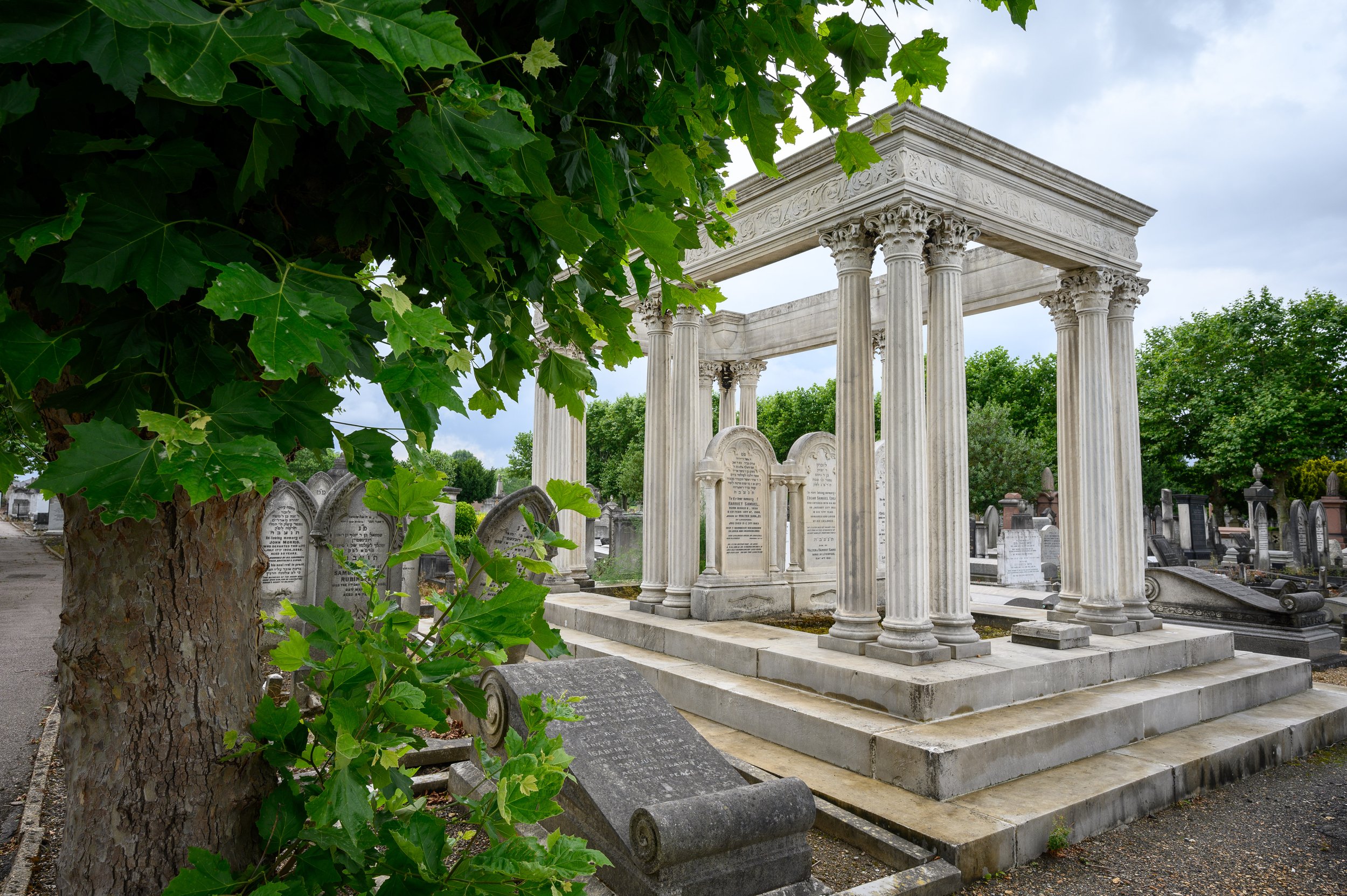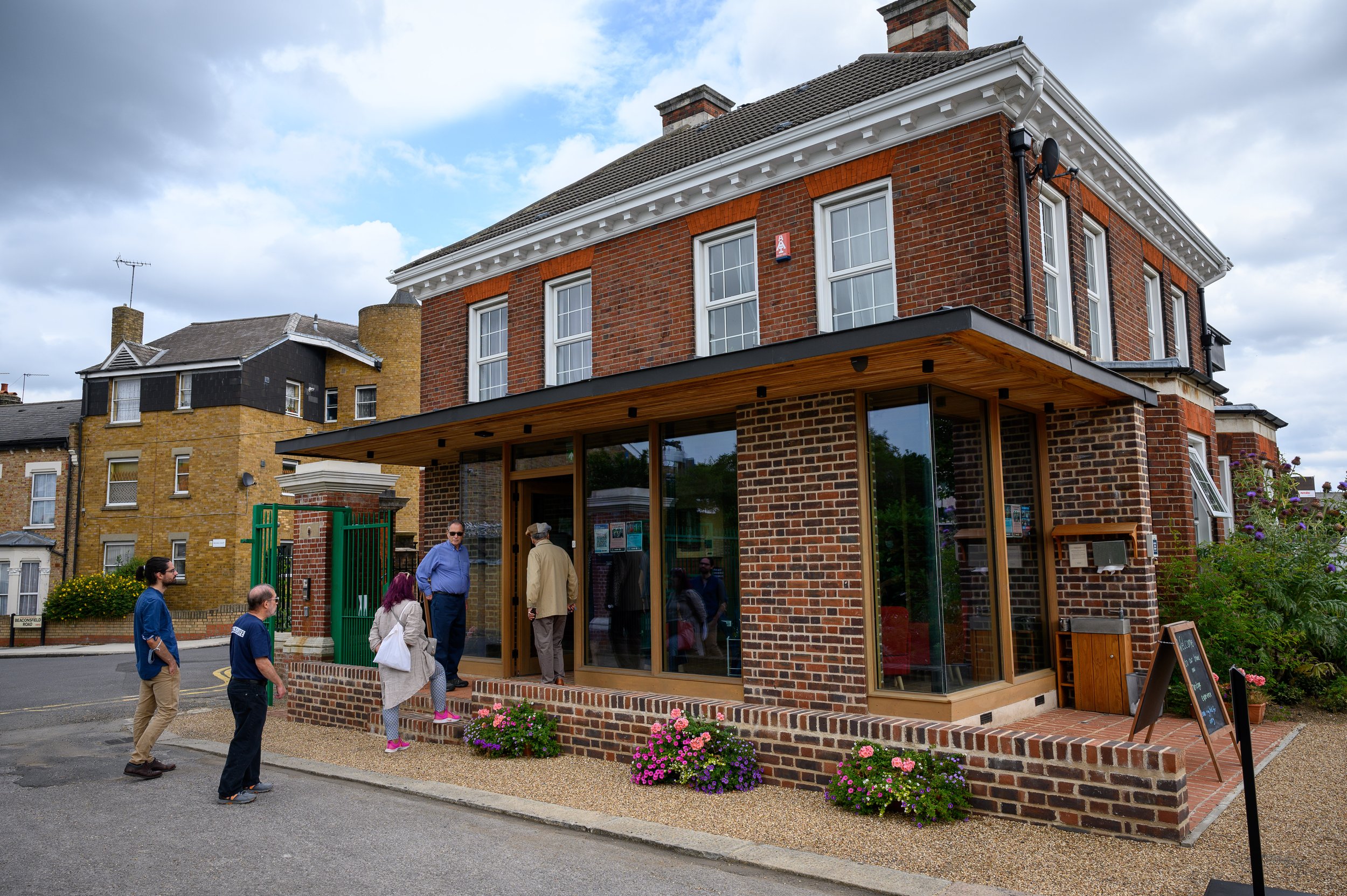

Visit the House of Life
London’s new heritage experience
London’s new heritage experience
Drop in to the House of Life Heritage Centre at Willesden Jewish Cemetery for information which will set you up for a visit around the grounds. You will also be able to see our exhibition and film.
Join us for the Highlights walking tour, bringing Jewish heritage to life through remarkable stories and architectural landscape
A friendly in person discussion in a non-judgemental space for adults who want to talk openly about death. All welcome.
Women’s themed guided walk at Willesden Jewish Cemetery.
Special event with HIAS+JCORE, celebrating heritage and belonging
Uncover the stories of tradition breaking genius and the world of art at Willesden Jewish Cemetery
Special guided walk for those who might find walking challenging but still wish to enjoy the benefits of a leisurely stroll
Nearly 30,000 men, women and children have been buried at Willesden Jewish Cemetery since 1873 and people are still buried there today.
The lives highlighted here represent the rich diversity of backgrounds and life experiences that deserve further exploration on a visit to the cemetery.
E. Moses & Sons was one of the leading, if not the pre-eminent, men’s clothing retailers of the 19th century. Founded in 1829 with a shop in Houndsditch, the business quickly expanded, moving to much larger premises in Aldgate by 1832.
Henry and Alice Julia Lucas were key figures in Victorian Anglo-Jewish religious and communal life.
Nathan Marcus Adler, first Chief Rabbi of the British Empire, was a founder of the United Synagogue in 1870 and of a form of orthodox Jewish practice which lasts to this day.
Henrietta Adler, known as “Nettie”, was one of the first two women on the London County Council, the body that governed London from 1889 to 1965.
Possibly the most famous of all people buried at Willesden, chemist Rosalind Franklin played a key part in the discovery of the structure of the human genetic code.
Jane Joseph was a promising musician and arranger whom composer Gustav Holst called “possibly the best pupil I ever had”. Much of her work is lost.
Samuel Moses ran a shipping fleet that plied between Australia and Britain, trading wool for consumer goods. He was the first person to be buried at Willesden Cemetery.
A beautician and blackmailer whose exploits were the sensation of mid-19th century crime reporting. She was prosecuted twice for fraud.
Descended from the Rothschild banking family of Frankfurt, Hannah became the richest woman in England and married a future prime minister.
Walter much preferred zoology to the family business of finance. He created a national scientific collection and was recipient of the “Balfour Declaration”, a milestone in the history of Zionism.
If you ever stopped to think who was H. Samuel, the person behind the name on the high street jewellery stores, you would possibly not conclude it was a Victorian Jewish lady from Liverpool.
Marcus Samuel was co-founder of the Shell oil company, invented the bulk oil tanker and was Lord Mayor of London.
Simeon Solomon was a leading light in the popular group of Victorian artists known as the Pre-Raphaelite Brotherhood.
Arnold Weinstock took electrical engineering giant GEC through the “white heat of technology” and became Britain’s premier industrialist.
Solomon Joseph Solomon was an artist, member of the Royal Academy, who helped design camouflage during the First World War